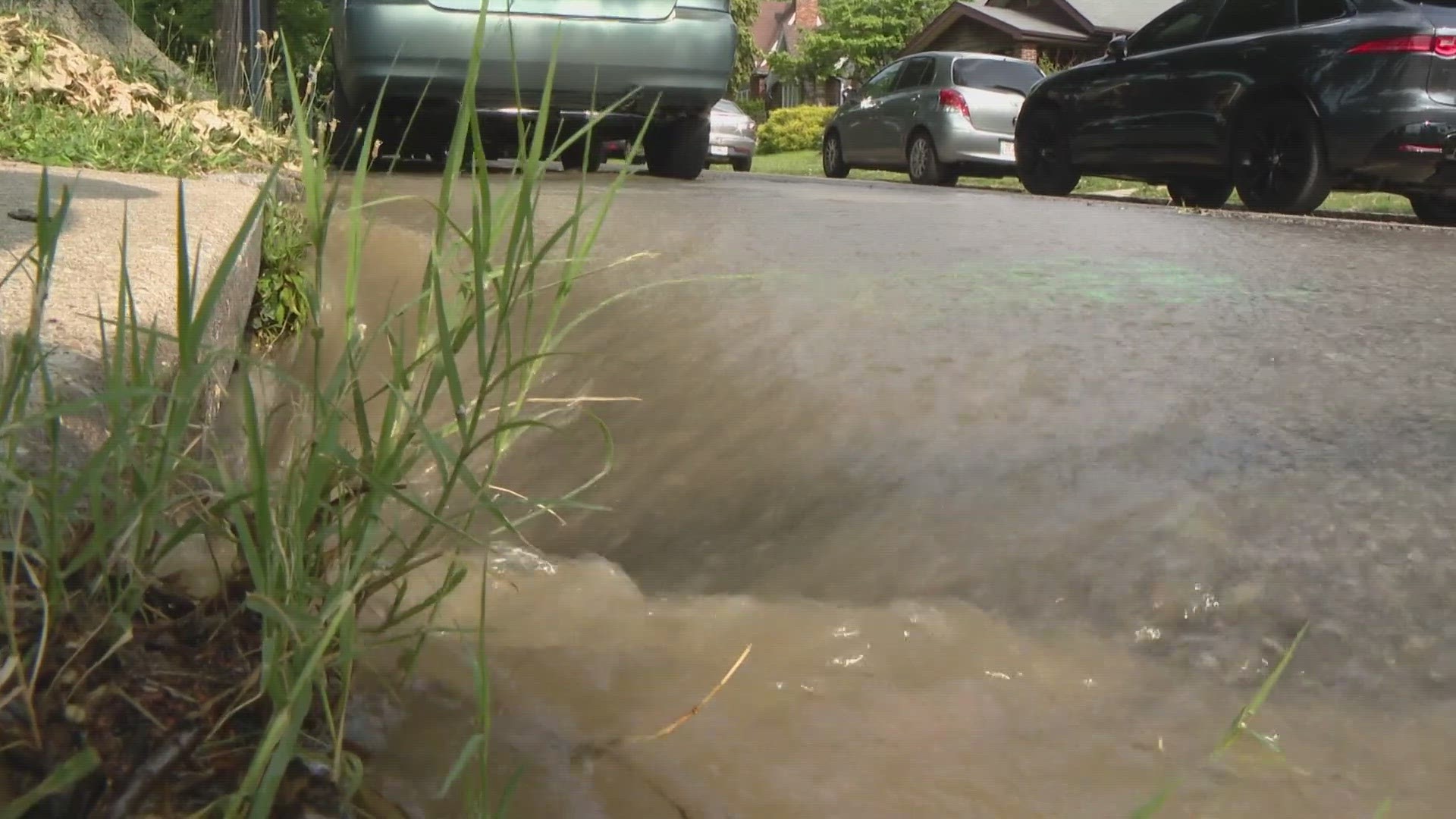ST. LOUIS — A recent report names St. Louis as one of five areas at risk for a water crisis. The CNN report points to an aging infrastructure and lead pipes as the main reasons St. Louis could be at risk.
The city of St. Louis has water and sewer infrastructure that's more than 100 years old, and it's getting more and more beat up by extreme weather.
“That's really beyond the lifetime expectancy of our infrastructure. And so when we're straining that even more by these extreme weather events, that's when we start to see problems and disruptions in water supplies,” Saint Louis University Water Institute Principal Investigator and Biology Professor Jason Knouft said.
There are also an undetermined number of lead pipes throughout the city especially in service lines that deliver water from the main pipes to homes and businesses.
This is something Susan Armstrong with the Missouri Safe Drinking Water Commission is keeping an eye on.
“Lead is a neurotoxin and your most vulnerable populations are babies and children,” Armstrong said.
The city is currently taking inventory of all the lead service lines in the city and hopes to be finished with it by the end of next year.
Armstrong says her family was affected by lead pipes and had her kids tested.
“Of the three children, the 18-month-old came back with high blood level levels. So the investigator from the public health department asked me, the mother, could it be the tap water?” Armstrong said.
And in fact, it was pointing to an old lead pipe connected to her home which government programs can now help with.
“They first dug up the line to show me that I did have a lead service line, and then they replaced it at no cost to me with a 1-inch copper line,” Armstrong said.
But does all this mean we could see a water crisis? Knouft said no, but it shows the infrastructure needs updating to avoid it, making things like water rate increases necessary.
“The way I think about it is if my roof is leaking, I don't like to pay for it, but I realize that if I don't pay for it, it's only going to get worse. And with our water infrastructure it is exactly the same thing,” Knouft said.
Knouft said in addition to infrastructure changes, which are expensive and don't happen overnight, other things that could help are rain gardens that absorb water to not overwhelm the system.

